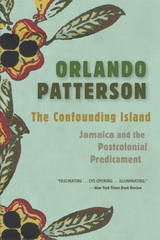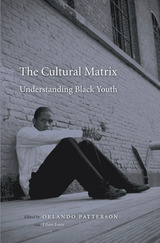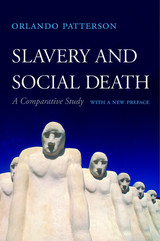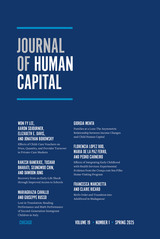
The preeminent sociologist and National Book Award–winning author of Freedom in the Making of Western Culture grapples with the paradox of his homeland: its remarkable achievements amid continuing struggles since independence.
There are few places more puzzling than Jamaica. Jamaicans claim their home has more churches per square mile than any other country, yet it is one of the most murderous nations in the world. Its reggae superstars and celebrity sprinters outshine musicians and athletes in countries hundreds of times its size. Jamaica’s economy is anemic and too many of its people impoverished, yet they are, according to international surveys, some of the happiest on earth. In The Confounding Island, Orlando Patterson returns to the place of his birth to reckon with its history and culture.
Patterson investigates the failures of Jamaica’s postcolonial democracy, exploring why the country has been unable to achieve broad economic growth and why its free elections and stable government have been unable to address violence and poverty. He takes us inside the island’s passion for cricket and the unparalleled international success of its local musical traditions. He offers a fresh answer to a question that has bedeviled sports fans: Why are Jamaican runners so fast?
Jamaica’s successes and struggles expose something fundamental about the world we live in. If we look closely at the Jamaican example, we see the central dilemmas of globalization, economic development, poverty reduction, and postcolonial politics thrown into stark relief.

A New York Times Book Review Editors’ Choice
Winner of a PROSE Award
“Fascinating…Eye-opening…Illuminating…Patterson carefully explores the complexity of the structural machinery behind Jamaica’s dazzling successes and dismal failures.”
—Carrie Gibson, New York Times Book Review
“In the ruins of postcolonial Jamaica, Patterson unearths a vibrant popular culture, centered in particular on dancehall music, that can provide new resources to address the postcolonial predicament.”
—Adom Getachew, The Nation
“Masterful…A memorable, nuanced, and insightful social analysis of the island and its place in global history. Highly recommended.”
—Daron Acemoglu, coauthor of Why Nations Fail
There are few places more puzzling than Jamaica. Jamaicans claim their home has more churches per square mile than any other country, yet it is one of the most murderous nations in the world. Its reggae superstars and celebrity sprinters outshine musicians and athletes in countries many times its size. Jamaica’s economy is anemic and many of its people impoverished, yet they are, according to international surveys, some of the happiest on earth. In The Confounding Island, Orlando Patterson returns to the place of his birth to reckon with its contradictions.
Patterson investigates the failures of Jamaica’s postcolonial democracy, exploring why the country has been unable to achieve broad economic growth and why its free elections and stable government have been unable to address violence and poverty. If we look closely at the Jamaican example, we see the central dilemmas of globalization, economic development, poverty reduction, and postcolonial politics thrown into stark relief.

The Cultural Matrix seeks to unravel a uniquely American paradox: the socioeconomic crisis, segregation, and social isolation of disadvantaged black youth, on the one hand, and their extraordinary integration and prominence in popular culture on the other. Despite school dropout rates over 40 percent, a third spending time in prison, chronic unemployment, and endemic violence, black youth are among the most vibrant creators of popular culture in the world. They also espouse several deeply-held American values. To understand this conundrum, the authors bring culture back to the forefront of explanation, while avoiding the theoretical errors of earlier culture-of-poverty approaches and the causal timidity and special pleading of more recent ones.
There is no single black youth culture, but a complex matrix of cultures—adapted mainstream, African-American vernacular, street culture, and hip-hop—that support and undermine, enrich and impoverish young lives. Hip-hop, for example, has had an enormous influence, not always to the advantage of its creators. However, its muscular message of primal honor and sensual indulgence is not motivated by a desire for separatism but by an insistence on sharing in the mainstream culture of consumption, power, and wealth.
This interdisciplinary work draws on all the social sciences, as well as social philosophy and ethnomusicology, in a concerted effort to explain how culture, interacting with structural and environmental forces, influences the performance and control of violence, aesthetic productions, educational and work outcomes, familial, gender, and sexual relations, and the complex moral life of black youth.

The name “Helots” evokes one of the most famous peculiarities of ancient Sparta, the system of dependent labor that guaranteed the livelihood of the free citizens. The Helots fulfilled all the functions that slaves carried out elsewhere in the Greek world, allowing their masters the leisure to be full-time warriors. Yet, despite their crucial role, Helots remain essentially invisible in our ancient sources and peripheral and enigmatic in modern scholarship.
This book is devoted to a much-needed reassessment of Helotry and of its place in the history and sociology of unfree labor. The essays deal with the origins and historical development of Helotry, with its sociological, economic, and demographic aspects, with its ideological construction and negotiation.

This is the first full-scale comparative study of the nature of slavery. In a work of prodigious scholarship and enormous breadth, which draws on the tribal, ancient, premodern, and modern worlds, Orlando Patterson discusses the internal dynamics of slavery in sixty-six societies over time. These include Greece and Rome, medieval Europe, China, Korea, the Islamic kingdoms, Africa, the Caribbean islands, and the American South. Slavery is shown to be a parasitic relationship between master and slave, invariably entailing the violent domination of a natally alienated, or socially dead, person. The phenomenon of slavery as an institution, the author argues, is a single process of recruitment, incorporation on the margin of society, and eventual manumission or death.
Distinctions abound in this work. Beyond the reconceptualization of the basic master–slave relationship and the redefinition of slavery as an institution with universal attributes, Patterson rejects the legalistic Roman concept that places the “slave as property” at the core of the system. Rather, he emphasizes the centrality of sociological, symbolic, and ideological factors interwoven within the slavery system. Along the whole continuum of slavery, the cultural milieu is stressed, as well as political and psychological elements. Materialistic and racial factors are deemphasized. The author is thus able, for example, to deal with “elite” slaves, or even eunuchs, in the same framework of understanding as fieldhands; to uncover previously hidden principles of inheritance of slave and free status; and to show the tight relationship between slavery and freedom.
Interdisciplinary in its methods, this study employs qualitative and quantitative techniques from all the social sciences to demonstrate the universality of structures and processes in slave systems and to reveal cross-cultural variations in the slave trade and in slavery, in rates of manumission, and in the status of freedmen. Slavery and Social Death lays out a vast new corpus of research that underpins an original and provocative thesis.

Winner of the Distinguished Contribution to Scholarship Award, American Sociological Association
Co-Winner of the Ralph J. Bunche Award, American Political Science Association
In a work of prodigious scholarship and enormous breadth, which draws on the tribal, ancient, premodern, and modern worlds, Orlando Patterson discusses the internal dynamics of slavery in sixty-six societies over time. These include Greece and Rome, medieval Europe, China, Korea, the Islamic kingdoms, Africa, the Caribbean islands, and the American South.
Praise for the previous edition:
“Densely packed, closely argued, and highly controversial in its dissent from much of the scholarly conventional wisdom about the function and structure of slavery worldwide.”
—Boston Globe
“There can be no doubt that this rich and learned book will reinvigorate debates that have tended to become too empirical and specialized. Patterson has helped to set out the direction for the next decades of interdisciplinary scholarship.”
—David Brion Davis, New York Review of Books
“This is clearly a major and important work, one which will be widely discussed, cited, and used. I anticipate that it will be considered among the landmarks in the study of slavery, and will be read by historians, sociologists, and anthropologists—as well as many other scholars and students.”
—Stanley Engerman
READERS
Browse our collection.
PUBLISHERS
See BiblioVault's publisher services.
STUDENT SERVICES
Files for college accessibility offices.
UChicago Accessibility Resources
home | accessibility | search | about | contact us
BiblioVault ® 2001 - 2025
The University of Chicago Press









